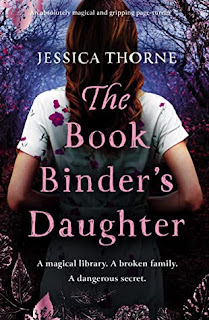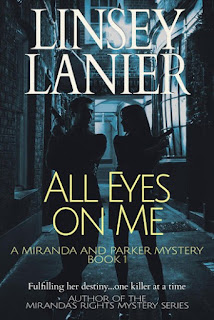Weekly Reader: The Circle of Ceridwen (The Circle of Ceridwen Saga Book 1) by Octavia Randolph; A Strong Feminist Start Cannot Save Over Long Historical Epic Romance
By Julie Sara Porter
Bookworm Reviews
Spoilers: There is nothing worse than a book that begins so promising that falters towards the middle and disappoints so much by the end. It's worse than a book that is bad all the way through, because there was such high hopes in the beginning that are deflated by an underwhelming end. The Reader can feel hurt and betrayed.
Such is the case with The Circle of Ceridwen, Octavia Randolph's historical epic novel. It begins very well with two strong female leads and carries a powerful theme on how similar enemies at war really are and only property lines and country names keep us from realizing it. Then it changes into a generic romance and threatens to become a standard good army vs. bad army conflict. It could have been so much more.
Ceridwen is the daughter of of a deceased warlord of Mercia. She has been raised in an abbey to read, write, and fight if need be. At the age of 15, she is supposed to take the veil and become a nun. However, she doesn't feel the calling and has no prospects for marriage. With the abbot's blessing, she goes out in the world to seek her own path.
Significantly, this is usually the start of a man's journey to seek their fortune. That a woman is doing this shows how slightly subversive the writing can be within certain tropes.
While stopping, Ceridwen encounters a procession that is carrying Lady Aelfwyn of Wessex who is heading for Lindisse, an area controlled by the Danes. Aelfwyn is arranged to marry Yrling, a Danish lord in an act of conquest and to bring about peace. Ceridwen and Aelfwyn bond so much that Aelfwyn instantly makes the younger woman her companion and the two become best friends.
The book develops Ceridwen and Aelfwyn very well. Ceridwen is more self assured and bolder than her friend while Aelfwyn is nervous and uncertain about her new role as Lady of the Danes. She is upset with being used as a prize and that she had to leave the man that she really loved, Gyric son of Godwulf of Kilton in the Kingdom of Wessex. Ceridwen reminds her that she can do much
good for the people and become a shining beacon for those in war. She subtly reminds Aelfwyn that since she will be in a position of power, that there are more people involved than just her and she needs to put her hurt emotions aside because she has a job to do.
One of the strongest moments of what this book could be is when Ceridwen and Aelfwyn visit the people of Lindisse and see many widows, orphans, and disfigured veterans. Aelfwyn is touched particularly, by the status of the women who live without choice and are under the thumb of societal standards and dominating husbands. She finally understands what her role is and she and Ceridwen talk about changing things in Lindisse.
There is a lot of change in the beginning, especially towards Ceridwen and Aelfwyn. Before they, especially Aelfwyn, saw the Danes as an ignorant enemy that they didn't want to know. Yrling is gruff and set in his ways, but Aelfwyn comes to care for him to the point of worrying when he goes into battle. Ceridwen becomes the center of attention between two of Yrling's nephews. One, Toki, repulses Ceridwen with his aggressive sardonic behavior but Sidroc and Ceridwen develop a mutual understanding and friendship as they share stories as children of war.
One of the moments that show real understanding is how Ceridwen alters her spiritual path. At first, she was raised in a Christian abbey. While she didn't necessarily fit in with the life of a nun, she had preconceived notions of pagans because of her influence. She and Aelfwyn saw them as barbaric and backwards.
However, Ceridwen begins to see the freedom that the pagan path offers for women. It's a nice departure from Christianity which insists that all women are vessels of sin because of Eve. It gets to the point that Ceridwen has a religious experience where she speaks to a figure that might be Ceridwen, the Goddess and her namesake.
It's such a good book in the beginning that it is extremely upsetting that it changes during the halfway point. Ceridwen volunteers to free Aelfwyn's imprisoned former lover, Gyric. The two go on the run to Gyric's kingdom of Wessex. Along the way,they become lovers.
On paper, it's not a bad idea. Ceridwen shows a lot of strength and determination and takes the lead in their adventure. Gyric had been blinded and wounded from his imprisonment and needs Ceridwen to guide him home.
However, the plot really devolves. Among the reasons that the second half isn't as good as the first is the departure of Aelfwyn and the decline of the friendship between her and Ceridwen.
The book seemed to be more about a friendship between the two female friends. They could have been lovers, but more importantly they were best friends who brought out the best of each other. It was a feminist stance that two women can lead and bring about such change.
Unfortunately, since Aelfwyn disappears the second half of the friendship is gone, relying on the standard male-female romance to propel the narrative. I apologize, but it is nowhere near as compelling as the friendship that preceded it. One of the reasons is that while Ceridwen and Aelfwyn are dynamic characters that change because of their friendship, Gyric is the same static character throughout. Of course, he has been wounded and tortured and is suffering through PTSD, but that could have easily been a separate book. In fact, his and Ceridwen's subplot could have easily been a separate book and not tacked on to this one.
Ceridwen's story has been told and she has gone through great dramatic change, so that her and Gyric's story is unnecessary that it seems like filler. The plot just drags on and on when it would have had a better ending.
The Circle of Ceridwen is like a circle that starts with a strong beginning and just goes on and on instead of having a real ending. This is one circle that needs to be a lot smaller.










